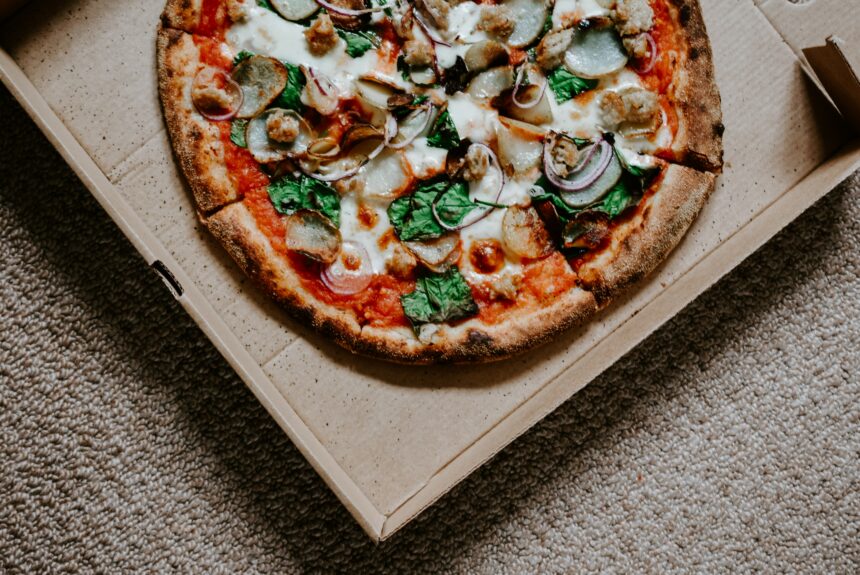Switching to a vegan lifestyle can be beneficial for both people and the planet. Plant-based diets are rich in vitamins and minerals that help ward off early illness and reduce the risk of health-related conditions like obesity, high blood pressure, type 2 diabetes, cardiovascular disease, and heart disease.
>>>READ: Meet the Company that Grows Veggies With Recycled Rainwater
While most people who go vegan do so for health reasons, the benefits don’t end there. Cutting out animal products – meat, fish, dairy, and eggs – is one step that can be taken to reduce our environmental footprint.
Enter CLO-CLO Vegan Foods, a fast-growing vegan food innovator specializing in delicious plant-based pizzas, entrées, and patent-pending vegan cheese.
All of the company’s frozen food creations are gluten-free and devoid of the most common allergens like peanuts, wheat, dairy, egg, lupin, mustard, fish, shellfish, and soy. The specialty meals are also kosher, according to the company’s website.
Here are just a few of the many products CLO-CLO Vegan Foods offers:
- A meatless pepperoni pizza on a cauliflower-based crust made with beans, beets, peppers, mushrooms, and spices designed to mimic the natural flavor of the true Italian pie
- A meatless Caribbean-inspired pizza with Jamaican-style jerk chicken substitute on a sweet potato base
- A Hawaiian-inspired shrimp bowl made with plant-based shrimp, sweet pineapples, and a sweet and sour tropical teriyaki sauce
- Habanero style vegan cheese shreds, ideal as a starter or for using as a topping on dishes
- Garlic and olive oil cauliflower breadsticks, perfect for snacking
The products are available at Sprouts Farmers Market grocery stores nationwide. CLO-CLO Vegan Foods can also be found online at Amazon.
CLO-CLO Vegan Food’s success in the plant-based food market comes as millions of people worldwide have decided to make the switch to a vegan lifestyle. Sales of plant-based foods in the U.S. hit an all-time high of $7.4 billion in 2021, up 6.2% from 2020 and a whopping 54% over three years, according to data from the Plant Based Foods Association (PBFA). In fact, sales of vegan foods over the year reported three times faster growth than sales of conventional foods as the standard food industry struggled with pandemic-related supply chain challenges and sky-high inflation. By year’s end, every category of plant-based foods saw its total share in the market increase except for meat, which held steady from 2020’s record pace of growth.
“The sustained rise in the market share of plant-based foods is remarkable, and makes it clear that this shift is here to stay,” said PBFA’s Senior Director of Marketplace Development Julie Emmett in a 2021 retail sales data report. “More and more consumers are turning to plant-based options that align with their values and desire to have a positive impact on personal and planetary health.”
Addressing environmental challenges means shifting towards a variety of more sustainable food options. A responsible vegan diet is one way to do that. For starters, roughly 100 times the land used to produce a kilocalorie or gram of protein of plant-based alternatives is used to produce a kilocalorie or gram of protein of beef, according to a study from the journal Science. Research from Our World In Data found that while it takes approximately 120 square meters and 117 square meters of land to produce 1000 kilocalories of beef and lamb, it takes less than one square meter of space to produce the equivalent amount of root vegetables, rice, and maize. High-protein plant-based alternatives like tofu and nuts require just 1.3 square meters and 2.11 square meters of land per 1000 kilocalories, respectively.
>>>READ: ‘Upcycled’ Foods: An Innovative Solution to Reducing Food Waste
In addition to requiring less land for agriculture, producing foods for a plant-based diet also uses significantly less water. Currently, nearly half of the country’s total water consumption goes towards raising animals for food. While it takes 180 gallons of water to produce one pound of whole wheat flour, it takes 2,400 gallons of water–more than 13 times the amount–to yield the equivalent amount of beef. The amount of water associated with the standard American diet means that on average, meat-eaters consume the equivalent of 600 more gallons of water per day than vegans.
Adopting a less meat-intensive and responsibly sourced diet can feed more people across the world while putting less strain on the environment and our bodies alike. In order to help the average American consumer make the switch, more innovative food startups that offer a range of healthy and tasty plant-based food options like CLO-CLO Vegan are needed.
Nathalie Voit is a freelance content creator and a graduate of the University of Florida. She is an alumni of The Heritage Foundation’s Young Leaders Program.
The views and opinions expressed are those of the author’s and do not necessarily reflect the official policy or position of C3.
